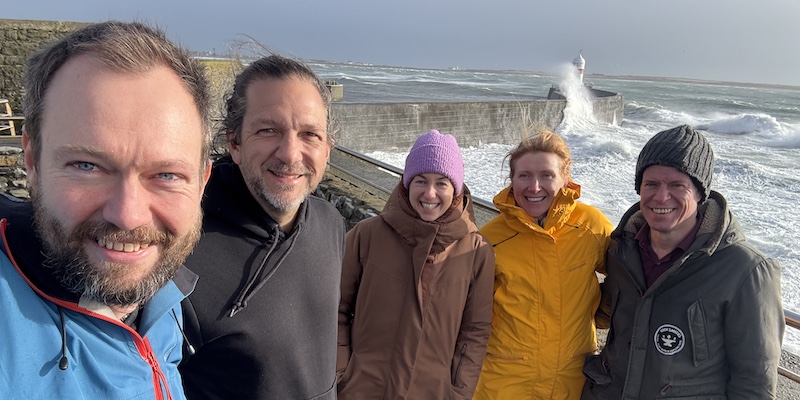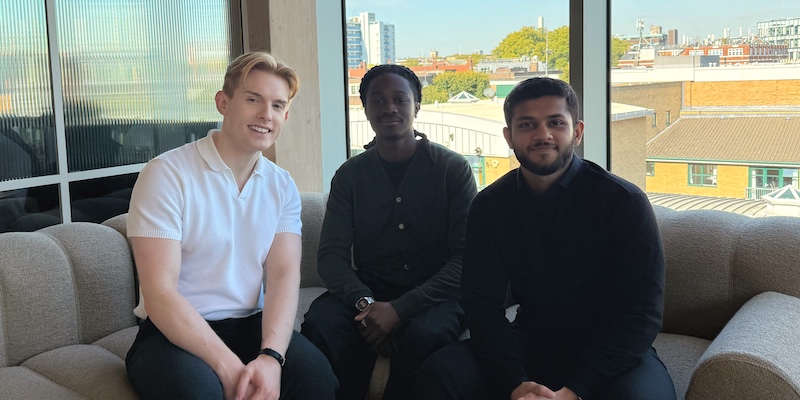
Behind the B - tech for good founders share their B Corp journey
March marks B Corp month - an annual campaign for certified B Corporations to join together and raise awareness about the global movement to use business as a force for good. Since BGV became a B Corp as the first UK VC in 2015, there has been a steady rise in companies certifying, including BGV portfolio companies, with every business committing to higher standards of social and environmental performance, transparency and accountability.
In our new event series, Tech for Good Talks, we bring founders and aspiring founders together to talk about all things tech for good. For our first instalment, we wanted to shine a light on the rising number of tech for good founders who are choosing to become a B Corp, and really get behind their motivations as to why and what it means to go through the process across different stages in a startup’s journey.
For this, we were joined by Sophie Slater, co-founder of Birdsong, an ethical and sustainable fashion brand; Mike Saunders, co-founder of Commonplace, an online engagement platform for more inclusive decision making within communities; and Paul Moynihan, co-founder of TaskHer, a platform connecting homeowners to highly skilled tradeswomen to address the gender imbalance in the trades industry.
Behind the B - motivations to becoming B Corps
Our panellists are founders with companies all in different stages of their businesses, yet all have considered becoming a BCorp around the same time. Here they share what motivated them to join the B Corp movement:
Mike: “We’ve been interested in B Corps since BGV became one in 2015, that’s probably the first I heard of it. But it felt like it hadn’t quite got the critical mass in the UK until relatively recently. Another reason was that we’ve been through several big assessments like the ISO 27,001. I feel that as a small organisation you can only really do one of these at a time. There are quite a lot of people who are interested in B Corp, particularly in the property development sector. So being part of that community has become something that's more and more important for us. I think the most important benefit is underlining our commitment to impact, which we've had all through the history of Commonplace. It feels like it's the most credible stamp that exists at the moment.”
Sophie: “I think changes in our industry made us feel like it was the right time. We were seeing other fashion brands globally become B Corps. And the ethical or sustainable fashion space has become a lot more saturated and competitive. Or at least the sustainable fashion space has - Ethics is still quite rare in the fashion industry, despite all the sustainability talk. We wanted to differentiate ourselves, which to me made it worth the effort. Also, we have an expanding team and we wanted to have more policies and processes in place. One of the things that drew us to B Corps is that it formalises a lot of your policies. And so for hiring,scaling, and preparing to fundraise, potentially, in the near future, we really wanted to demonstrate that we have those policies in place, and be able to replicate and scale them. Another consideration was that it would help track our impact, because one of the good things about the B Impact Assessment is that you can set yourself goals - and it is quite rigorous! I'm impressed by the level of questioning that they do ask. People want to see more and more data. Funders and, customers are more scrupulous.It just made sense for usto get this one massive assessment done, and then hopefully, we can pull impact data from it and set goals as an organisation.”
Paul: “We’re super early stage, we really just launched our product in London in the last four or five weeks. Both my co-founder and I were adamant that we want to create a business that does good in the world. Getting on the journey sooner rather than later was appealing. As we grow our business, we can use that framework to inform the policies that we're creating around hiring, around how we engage our suppliers, and around sustainability and environmental issues. It made sense to do it right at the start of the journey. So it's baked into who the business is from pretty much day one.”
What are the costs involved?
For many early-stage businesses trading for less than two years, it might be too early to go through the certification process, which is independently verified. However, new businesses can signal their commitment by becoming a Pending B Corp business. This is what Paul and his co-founder did for TaskHer. To become a Pending B Corp, companies must:
- Meet the B Corp legal requirement, which means amending the companies Articles of Association to legally commit to considering the impact on stakeholders;
- Complete and submit a prospective B Impact Assessment, which also helps companies identify in which areas they might need more work, or which policies and practices they might need to put in place as they grow, and;
- Pay a one-time fee of £250, which covers a 12-month period.
A certified business differs from this, as the B Impact Assessment is independently verified and valid for three years. Sophie highlighted that it is a helpful exercise to do as a team, especially if multiple people are overseeing multiple aspects of the business. She also mentioned that equity discounts of 40% on certification fees are available to UK-based entrepreneurs facing systemic barriers to business ownership, so for example if you’re majority women-owned, women of colour of LGBTQ+ founders.
Generally, certification fees are then paid annually and calculated based on a company’s total revenue. Mike mentioned that the legal requirement to amend the company’s Articles of Association at their stage with multiple shareholders proved to be a bit tricky due to the additional admin needed, but thankfully all investors were on board with the amends. With significant traction for B Corps now, he suggested it might be a bit easier for companies to adopt the legal requirement early on in their startup journey.
Top tips for aspiring B Corps
On the advantages to becoming a B Corp everyone shared that it kickstarted conversations within their respective companies about how to measure impact, where there might be gaps in policies and how to address them. Asking our founders for their top tips for aspiring B Corps, they said:
- Leverage your team. Leverage the communities you’re part of, the chance is that someone will be able to share insights or templates with you.
- Start early. Think about how you want your business to grow responsibly and consider starting by becoming a Pending B Corp.
- Use it as an opportunity rather than a chore. When you feel like it's going to be an opportunity, rather than something on your to-do list, it's probably the right time. And then it can be something really, really positive.





